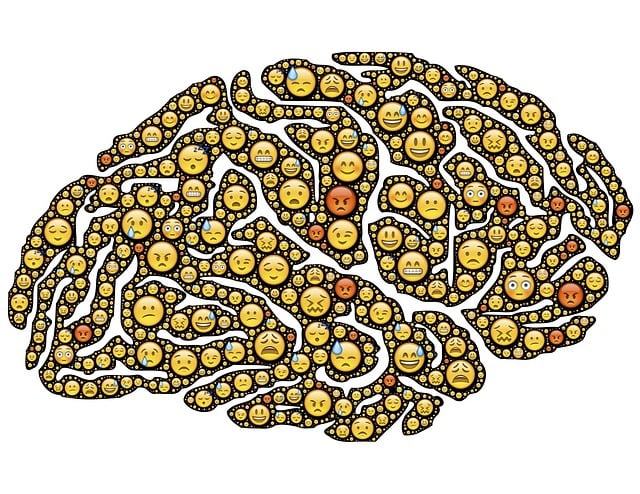Depression, characterized by persistent sadness, loss of interest, and various physical symptoms, requires early intervention and understanding. Denver Interpersonal Issues Therapy (DIIT) offers a unique approach by addressing interpersonal problems contributing to depression. Combining cognitive-behavioral techniques with an emphasis on communication, conflict resolution, and relationship building, DIIT enhances coping strategies, self-esteem, and resilience against burnout. This therapy is adaptable for education programs, promoting emotional intelligence in schools and communities. Additionally, integrating healthier lifestyle habits like exercise and mindfulness, DIIT empowers individuals to manage depression through self-care and relationship-focused strategies, ultimately fostering mental wellness within the community.
Depression is a pervasive condition affecting millions, but with the right strategies, prevention is achievable. This article explores comprehensive approaches to combat depression, focusing on Denver Interpersonal Issues Therapy (DIIT) as a proven method. We delve into lifestyle changes, from diet and exercise to stress management, showcasing their impact on mental health. Additionally, we highlight professional support options, emphasizing DIIT’s effectiveness in addressing interpersonal issues. By understanding these strategies, individuals can take proactive steps towards a healthier mind.
- Understanding Depression and Denver Interpersonal Issues Therapy
- Lifestyle Changes for Better Mental Health
- Professional Support and Techniques for Prevention
Understanding Depression and Denver Interpersonal Issues Therapy

Depression is a complex mental health condition that significantly impacts an individual’s daily life and well-being. It’s more than just feeling sad or overwhelmed; it’s characterized by persistent feelings of sadness, loss of interest in activities once enjoyed, changes in appetite and sleep patterns, fatigue, difficulty concentrating, and in severe cases, thoughts of death or suicide. Recognizing the signs and understanding the underlying causes are crucial steps in prevention.
Denver Interpersonal Issues Therapy (DIIT) is a therapeutic approach that focuses on identifying and addressing interpersonal problems contributing to depression. This therapy emphasizes the relationship between an individual’s emotional state and their interactions with others, aiming to improve communication, resolve conflicts, and build healthier connections. By combining techniques from cognitive-behavioral therapy with a deep understanding of interpersonal dynamics, DIIT helps individuals develop coping strategies for managing stress, enhancing self-esteem, and building resilience against burnout prevention. In addition to treating depression, this method can also be integrated into Mental Health Education Programs Design to promote mental well-being in schools and communities, fostering confidence boosting and overall emotional intelligence.
Lifestyle Changes for Better Mental Health

Adopting a healthier lifestyle can significantly contribute to improving mental health and preventing depression. Regular exercise, for instance, has been shown to boost mood by increasing the production of neurotransmitters like serotonin and dopamine, which play crucial roles in regulating emotions. Additionally, engaging in activities that promote emotional regulation, such as mindfulness meditation or yoga, can help individuals manage stress and develop healthier coping mechanisms.
In Denver Interpersonal Issues Therapy sessions, professionals often guide clients towards embracing these lifestyle changes and Emotional Well-being Promotion Techniques. Crisis Intervention Guidance is another vital aspect, helping individuals navigate challenging situations without resorting to depressive behaviors. By prioritizing self-care, building supportive relationships, and adopting a balanced lifestyle, one can effectively strengthen their mental resilience against depression.
Professional Support and Techniques for Prevention

Depression can be a complex condition, and seeking professional support is a vital step in prevention. Denver Interpersonal Issues Therapy offers effective strategies tailored to individual needs. Therapists help clients identify and change negative thought patterns and behaviors, fostering healthier relationships and coping mechanisms. This form of therapy encourages self-awareness, providing tools to manage stress and emotional challenges.
In addition to personalized therapy sessions, community outreach programs play a significant role in prevention. Implementing social skills training can enhance connections and support networks, reducing feelings of isolation. Encouraging mental wellness through journaling exercises guides individuals to reflect on their emotions and progress, promoting self-care practices. These comprehensive approaches, combined with professional guidance, empower individuals to take charge of their mental health and build resilience against depression.
In addressing depression prevention, a holistic approach combining understanding, lifestyle adjustments, and professional support proves most effective. The article has explored valuable strategies like Denver Interpersonal Issues Therapy, which focuses on interpersonal relationships to foster mental well-being. Lifestyle changes, including regular exercise, quality sleep, and mindful practices, significantly impact mood regulation. Additionally, seeking professional help from therapists or counselors equipped with techniques like cognitive-behavioral therapy offers tailored support for managing and preventing depression. By integrating these strategies into daily life, individuals can enhance resilience and overall mental health.









